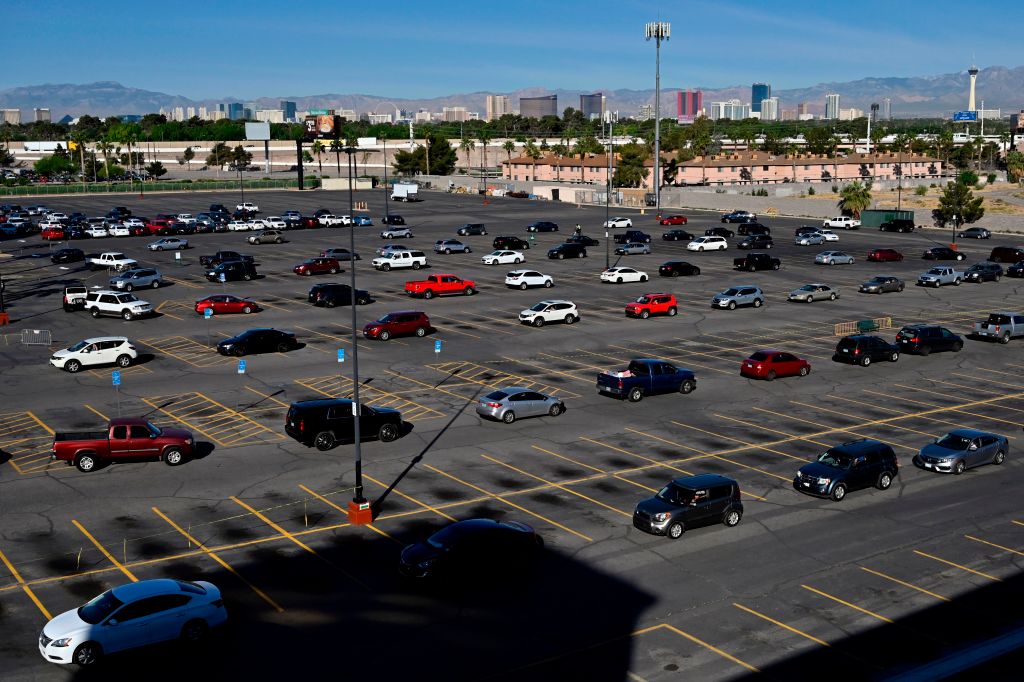U.S. sees biggest yearly jump in poverty rate in 60 years


A free daily email with the biggest news stories of the day – and the best features from TheWeek.com
You are now subscribed
Your newsletter sign-up was successful
By historical standards, poverty levels in the United States remain low, but the country has seen the biggest jump in poverty in a single year since the government began tracking such information 60 years ago, The Washington Post reports.
New data released Wednesday by researchers at the University of Chicago and the University of Notre Dame shows the poverty rate increased to 11.7 percent in November, up 2.4 percentage points since June, marking the fifth straight month of incline. In that time span, around 7.8 million Americans have fallen below the poverty line, or an income of $26,200 for a family of four.
Not only is the rise the largest in several decades, it is also nearly double the second-biggest increase, which occurred between 1979 and 1980 during the oil crisis, the Post reports.
The Week
Escape your echo chamber. Get the facts behind the news, plus analysis from multiple perspectives.

Sign up for The Week's Free Newsletters
From our morning news briefing to a weekly Good News Newsletter, get the best of The Week delivered directly to your inbox.
From our morning news briefing to a weekly Good News Newsletter, get the best of The Week delivered directly to your inbox.
Notre Dame and University of Chicago economists say the situation, unsurprisingly, stems from the coronavirus pandemic and the tough labor market it has created, as well as the fact that government aid is dwindling. A solution to either would help — when Congress passed the CARES Act in the spring and sent stimulus checks to Americans, poverty actually decreased — and it looks like a new relief bill is the more realistic goal. "Given the state of the virus, I wouldn't bet on significant improvement in the labor market in the short run," James Sullivan, a professor at Notre Dame, told the Post.
A free daily email with the biggest news stories of the day – and the best features from TheWeek.com
Tim is a staff writer at The Week and has contributed to Bedford and Bowery and The New York Transatlantic. He is a graduate of Occidental College and NYU's journalism school. Tim enjoys writing about baseball, Europe, and extinct megafauna. He lives in New York City.
-
 One great cookbook: Joshua McFadden’s ‘Six Seasons of Pasta’
One great cookbook: Joshua McFadden’s ‘Six Seasons of Pasta’the week recommends The pasta you know and love. But ever so much better.
-
 Scientists are worried about amoebas
Scientists are worried about amoebasUnder the radar Small and very mighty
-
 Buddhist monks’ US walk for peace
Buddhist monks’ US walk for peaceUnder the Radar Crowds have turned out on the roads from California to Washington and ‘millions are finding hope in their journey’
-
 Nobody seems surprised Wagner's Prigozhin died under suspicious circumstances
Nobody seems surprised Wagner's Prigozhin died under suspicious circumstancesSpeed Read
-
 Western mountain climbers allegedly left Pakistani porter to die on K2
Western mountain climbers allegedly left Pakistani porter to die on K2Speed Read
-
 'Circular saw blades' divide controversial Rio Grande buoys installed by Texas governor
'Circular saw blades' divide controversial Rio Grande buoys installed by Texas governorSpeed Read
-
 Los Angeles city workers stage 1-day walkout over labor conditions
Los Angeles city workers stage 1-day walkout over labor conditionsSpeed Read
-
 Mega Millions jackpot climbs to an estimated $1.55 billion
Mega Millions jackpot climbs to an estimated $1.55 billionSpeed Read
-
 Bangladesh dealing with worst dengue fever outbreak on record
Bangladesh dealing with worst dengue fever outbreak on recordSpeed Read
-
 Glacial outburst flooding in Juneau destroys homes
Glacial outburst flooding in Juneau destroys homesSpeed Read
-
 Scotland seeking 'monster hunters' to search for fabled Loch Ness creature
Scotland seeking 'monster hunters' to search for fabled Loch Ness creatureSpeed Read
